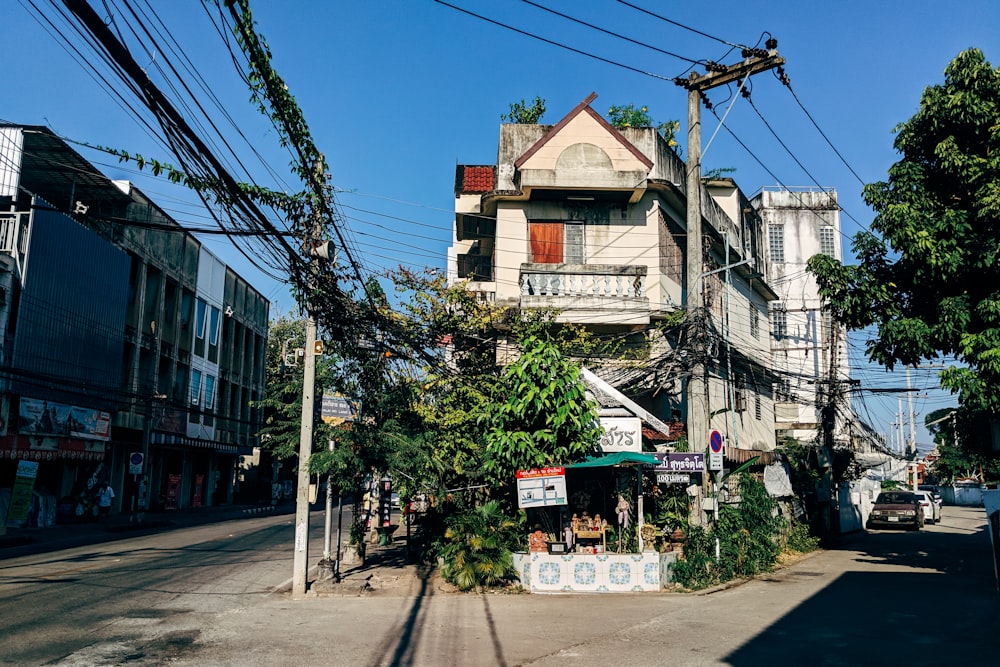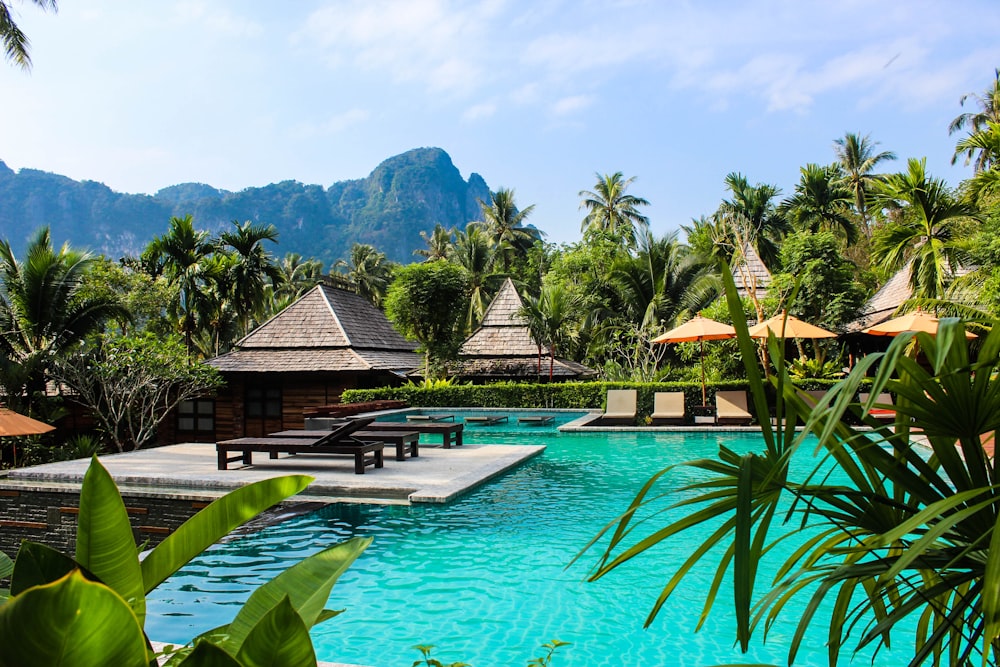Before we dive into the pros and cons of investing in a property in Thailand, there are several factors to note.
1. Thailand Policy of Overseas Investment
“Can I Buy Property in Thailand as a Foreigner?”
There are Three Possibilities to Purchase a Land for Foreigners:
1) Foreigners Can Buy Condo Units and Have Their Names Registered on the Title Deeds, the ‘Chanote’
This is the most simple and hassle-free way for foreigners to own property in Thailand and they benefit from a special type of freehold title known as a Condominium Freehold. The Condominium Act B.E 1979 and its amendments, condos need to ensure the following:
- Only up to 49% of the condo’s registrable area can be sold to foreign buyers; “Foreign Quota”, the remaining 51% must be owned by Thai nationals or Thai entities.
- If the Foreign Quota of a condo is sold out, foreign buyers can only acquire units in the building on a leasehold basis.
2) Foreigners Can Buy a House, Villa or Apartment With a Long Term Contract Rental (Leasehold)
One option is simply to acquire land on a leasehold basis; in Thailand the maximum lease on land is 30-years, with the possibility to have a contractual agreement for two subsequent renewals (Total of 90-years lease).
Leasehold rights are registered on the chanote and can be a simple way to enjoy a property without the hassle of additional and ongoing paperwork. While a leasehold may not offer ownership, it does offer the leaseholder exclusive rights to the use of that property.
3) Foreigners Can Buy Property Through a Thailand-Based Company
Thai people or companies may be owners of land and buildings constructed on this land. If the lease option does not please you, you can create a Thai company that you control, and which could legally buy land. The land will belong to the Company and as a director of the company, you will have control of the ownership of the land.
But this company will be controlled by the Land Department, it shall have a real activity! You have to go through a lawyer, so that you legally guide to the legal structure of the company.
2. Can a Foreigner Own a Land in Thailand?
Sometimes, pros and cons don’t matter. Why? Because current Thai law prohibits foreigners from buying land freeholds, and this restriction extends to landed property such as villas and houses. However, there are other ways to acquire legal rights to land titles, as mentioned previously.
However, a foreign buyer may buy freehold condominiums, which can be registered in their name at the local Land Department. Buying a property in Thailand is often leaves ex-pats frustrated and confused as to which route to take. When it comes to buying property in Thailand, there are several restrictions to keep note of:
Restrictions in Purchasing Power Among Foreigners in Thailand:
- Foreigners can’t own land in Thailand.
- When you buy a property such as a house, you own the house but not the land it is on.
- You can own a room in a condominium outright.
Did Covid-19 Impact These Policies in Any Way?
The real estate business in Phuket drew great interest from foreign investors. Many foreign tourists visit each year and have started to look at condominiums to purchase, and some also sought additional rental income when they were not in residence.
Because foreign tourists are the main source of purchasing power, the pandemic is hurting the property market in Phuket. As it heavily relies on tourism, the economy of Phuket became stagnant. Even though Thai tourists continued to come, they were not enough to revive the real estate sector of Phuket.
With a significant impact on movement, real estate activity has been severely compromised. Within such an uncertain situation, concerns about cash flow and the difficulties in conducting inspections have led to a fall in demand for most types of property in Phuket. Most Thai developers are postponing the launch of new condo projects to focus on clearing existing stock.
Currently, the Thai government has indicated it is considering every possible measure to stimulate the property market and encourage foreign investment. The government would most likely enact these reforms for a period of three to five years. This move would be valuable for the market.
Now, we can finally move on to the pros and cons of investing in property in Thailand.
3. Pros of Investing in Property in Thailand
-
Property prices & capital appreciation
Generally, properties in China, Singapore and Hong Kong are higher in cost than real estate in Phuket. Thailand’s property market also ranks as one of Asia’s most popular amongst Chinese investors.
According to recent data from the online Chinese real estate portal Juwai.com, Thailand was the most popular country globally when it comes to inquiries from potential real estate buyers in 2018.
The Chinese nationals were accounting for half of the international buyers in Phuket. When you buy a property in Phuket, Thailand, the value will go up (in a normal situation). The most beneficial way to buy is the significant discount off the purchase price offered to anyone buying early pre-pandemic.
-
Phuket, Thailand and it’s liberal laws for foreigners
Many reasons speak for an investment in real estate in Phuket. The first reason is that you have the right to a 100% freehold.
A non-Thai citizen can invest in a property in Thailand, but foreigners can legally only own a condominium freehold. You can invest in a house as long as you do it through a Thai partner. This method protects you automatically from going through complicated processes in a foreign land.
Furthermore, an investment in a house in Phuket can also be a wise move concerning the future as you can easily sell the condominium under foreign freehold to other Thais or foreign investors. As the government usually sells foreign freeholds at higher prices, you have good chances of profiting from selling a unit in the future.
-
Beautiful climate and beaches
Phuket, the peninsula in the country’s southwest, is known for its excellent weather, marvelous beaches, and luxurious hotels. It is certainly no wonder that many people seriously consider staying in this paradisiacal place and settle down.
Older people may consider Phuket as the place to spend a relaxed and sunny retirement while eating good food and enjoying the island’s incredible scenery.
| Read also: Why Begin Your Investment Alongside Chao Phraya River, Thailand |
-
Off-plan comes with attractive pre-construction discounts but with a catch
There is risk of buying an off-plan property that the development may never be completed which can happen due to a lack of funds or other reasons why the demand for units dries up and it can lead to unexpected bankruptcies of development projects.
Investors should make sure to have chosen developers of sound repute who are not exposing themselves to high risks. Make sure you consult with the professional real estate agent on the island regarding the pros and cons of your potential investment.
-
Environmental Impact Assessment (EIA) needs to approve development before construction
This doesn’t stop developers from marketing available units in advance. Changes in legislation or unforeseen problems on the land can lead to changes, delays or even full construction freeze.
-
The final product is not always what the marketing collaterals portray it to be
Despite increasing protection of buyers by the legislation, many developers still disregard the rules and make it hard for buyers to know what the final product will look like and the quality they can expect. There is almost nothing the investor can do in such cases even though the developer is, legally, in the wrong.
After weighing in the pros and cons of investment, investors need to choose the property they’re interested in investing in. Luckily, there’s that in abundance in Thailand.
5. Top 3 Areas That Are Hot for Property Investment
Patong
 The vast majority of people come to stay in Patong because it is great fun and just massively entertaining. There is a much faster pace of life than what you find on most of the island. In addition to the entertainment, Patong is difficult to beat for shopping, restaurants, supermarkets.
The vast majority of people come to stay in Patong because it is great fun and just massively entertaining. There is a much faster pace of life than what you find on most of the island. In addition to the entertainment, Patong is difficult to beat for shopping, restaurants, supermarkets.
Convenience in Patong makes property owners earn a high yield on rental in Patong very good, especially in the peak season, when the entire area is buzzing. If you buy wisely, you’re also likely to see good capital growth on your property investment.
Laguna
 If you are attracted to real estate at Laguna Phuket, you should look into investing in Banyan Tree Holdings Limited, one of Asia’s most successful luxury hotel chains. This Singapore-based company boasts 40 resorts in 28 countries throughout Asia, America, Africa, and the Middle East. These resorts employ close to 4,600 people and feature spas, shops.
If you are attracted to real estate at Laguna Phuket, you should look into investing in Banyan Tree Holdings Limited, one of Asia’s most successful luxury hotel chains. This Singapore-based company boasts 40 resorts in 28 countries throughout Asia, America, Africa, and the Middle East. These resorts employ close to 4,600 people and feature spas, shops.
Amenities and management of a world-class hotel group, combined with a championship golf course, also make Laguna properties very easy to rent out, especially in the high season. This Laguna’s collection of luxury properties is one of the most desirable locations in all of Phuket.
There are spacious sea view apartments, spectacular villas with easy beach access, and condos and townhouses further inland positioned either on a lakeside or in a lush, green tropical environment.
Rawai
 It is easy to understand why there are many new developments in Rawai. There is a good choice of condo and villa developments appearing all over the Rawai area, some inland, some closer to the beach, while others are perched on the mountain with stunning sea views.
It is easy to understand why there are many new developments in Rawai. There is a good choice of condo and villa developments appearing all over the Rawai area, some inland, some closer to the beach, while others are perched on the mountain with stunning sea views.
Given the area’s popularity, Rawai has attracted foreign residents and now has a huge community in the area. As the population has increased so has the choice of restaurants, cafes and bars, we expect more development to follow. There are still plenty of open tracts of land ideally suited to development.
Looking for your next property investment? IQI is here to address all your queries!




